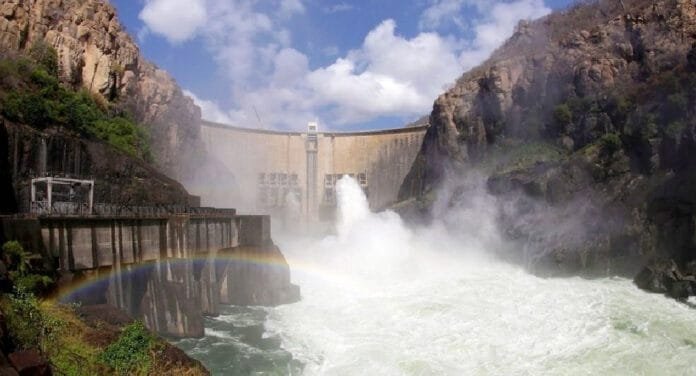Mozambique has played an essential role in providing energy support to Zimbabwe, which is facing one of the worst energy crises in its history due to the severe drought affecting the southern African region. Water shortages at the Kariba dam, Zimbabwe’s main source of hydroelectric power, have drastically reduced electricity generation capacity, aggravating power cuts that are already lasting more than 18 hours a day in some areas, according to Engineering News. According to the Zimbabwe Energy Regulatory Authority, around 20% of the electricity consumed in the country is imported, with a significant part coming from Mozambique and South Africa. This dependency has increased significantly in recent months, as water levels at the Kariba dam have fallen to just 3% of its capacity, leading to a reduction of more than 80% in the hydroelectric plant’s output.
Zimbabwe’s energy crisis is exacerbated by prolonged drought, intensified by the El Niño phenomenon, which has caused extreme weather events such as a shortage of rainfall. In addition, the country’s power generation infrastructure faces problems related to its advanced age and lack of maintenance, due to a shortage of foreign currency to import necessary parts and equipment. For many Zimbabweans, the impact is direct. The lack of energy has forced families and small businesses to resort to alternative solutions, such as using firewood, liquefied gas and diesel-powered generators, which increase operating costs and contribute to carbon emissions. The crisis has also hurt the local economy, with many entrepreneurs reporting significant losses due to the inability to maintain operations during power cuts.
Despite efforts to diversify the energy matrix with renewable projects such as solar plants and the expansion of coal-fired plants, the implementation of these initiatives has faced delays due to bureaucratic issues, lack of funding and currency volatility. Mozambique, for its part, continues to be a crucial supplier of electricity to that country, helping to mitigate the impacts of the crisis. The collaboration between the two nations reflects the importance of regional cooperation in the energy sector to tackle climate challenges and ensure greater energy security for southern Africa. Experts warn that to mitigate future crises, urgent measures are needed, including investments in renewable energy infrastructure and better water management in the region, which is among the most vulnerable to climate change.




